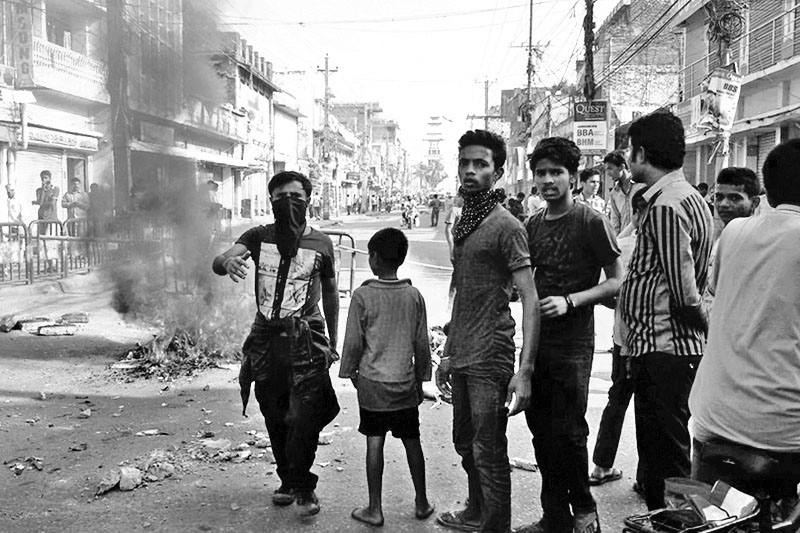LETTERS: Opportune advice
Apropos of the news story “US calls for peaceful solution to Tarai unrest” (THT, Nov. 4, Page 5), the government of Nepal should pay attention to the US advice and put an end to the conflict which, if left unresolved, will bring more misery in the country. This friendly advice comes at the most opportune moment. The government should address
the genuine concerns of the Madhes-based parties save those that will compromise the integrity and sovereignty of the country. Not too long ago, the Koirala government had extinguished the violent protests across the country
by promptly acceding to the demands of the people for unified districts and provinces.
Meanwhile, we should start putting up walls or fences on our border as an open one causes perennial problems even among brothers. At micro-level we construct walls to keep our neighbours at bay irrespective of how good, helpful and understanding they are. We keep peace, mutual respect and friendship forever by building walls all around our houses. Building walls does not mean that our trade and transit right will be impeded or forfeited. It might affect free
movement of people, but this is what we want eventually. We cannot compromise our proud image by allowing our people to cross over to a foreign country to work in sugarcane and paddy fields.
J. Talchabhadell, Bhaktapur
Involvement
The killing of an Indian national in Birgunj in police firing when the agitators were throwing stones at the police shows the direct involvement of the Indian Madhesis rather than Nepali ones. This proves that the Madhes-based parties are hiring Indian nationals to intensify their movement. Therefore, the Nepal government should lodge a strong protest with the Indian government over the Indian nationals’ participation in Nepal’s agitation. Such kind of infiltration will jeopardize the bilateral relations that both the countries are enjoying. It is unfortunate that the Indian
national was killed in police action. But the Indian government should have alerted its citizens against taking part in such political rallies or protests in a neighbouring country. Indian Prime Minister Narendra Modi should cooperate with the Nepal government to defuse tension at the no-man’s land and customs points so that commercial activities are carried out without any obstruction. I also find some weaknesses on the part of Nepal government. The local authorities should not have allowed the agitators to stage a sit-in at the customs points from the very beginning. Had the local administration barred them from staging such sit-ins they would not have been encouraged to do so for such
a long time bringing Nepal’s international trade and commerce to a grinding halt. As the prolonged agitation has paralysed life across the country, local people in Birgunj and Simara have started defying the bandh and indefinite strike and have started raising voices against the bandh enforcers.
Prabal Rai, via e-mail






